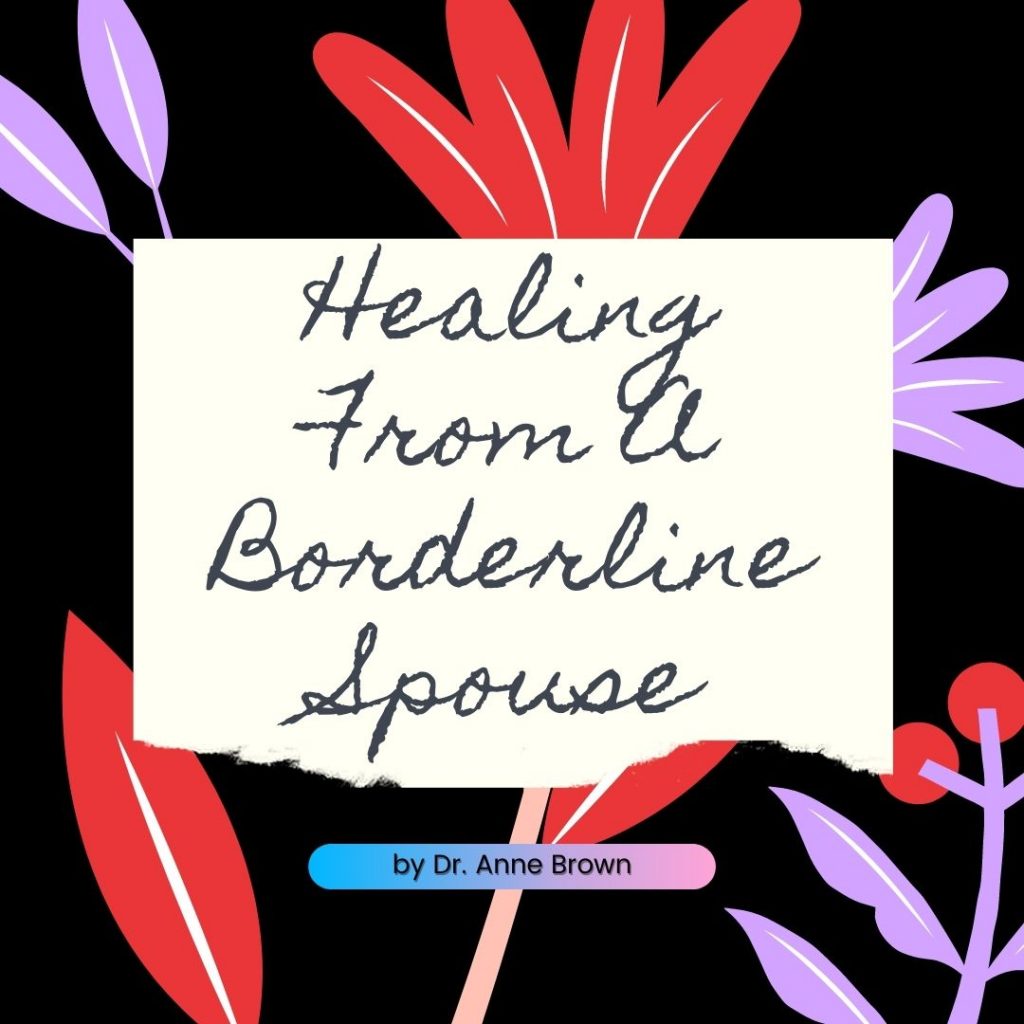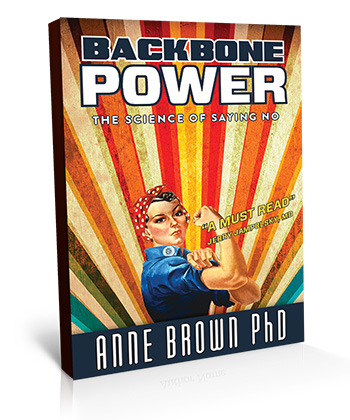
Stay or Leave?
When I wrote about healing from the Narcissist, I used the paradigm that the spouse had physically left the marriage. Today we are going to address physically staying or leaving but always with the goal of emotionally leaving the emotional abuse of the spouse with borderline personality disorder (BP). I believe a major consideration for whether you physically stay, or leave is “Is it better for me to stay and buffer the situation for the children or Leave and give them a healthy home for 50% of the time?” The answer to this question is very personal and I think best made once you have done your emotional recovery work. Once the children have left the home the considerations are different. If you have a value system that includes keeping a marriage together at all cost, you may find creative ways to stay married and maintain your mental health.
Emotionally Boundaries
The anxiety we spoke about that plagues the BP (borderline personality) is just that anxiety that belongs to the BP. The minute you unconsciously try to carry, mitigate, process other people’s emotions you are setting yourself up for failure. Would you go to work for someone one day because he/she didn’t want to go? Saying no to going to work for someone may be easy for you to see why the answer is no, and it is the same answer for processing someone’s emotions: Your job, your responsibility, your emotions, your responsibility.
When you are living with a depressed person, you have a choice every morning you wake up and he/she is depressed: go down the black hole of depression with him/her or the emotional boundary of “that is your depression, not mine, I hope if it is a really tough day you will call the professional who is helping you with your depression, and I will be over here enjoying my day if you want to join me.” You do not join the depression.
If you physically stay with your spouse with borderline personality disorder (BP), you MUST have the same strong emotional boundary every day. When the BP is struggling with intense emotions, you must say to yourself “this has nothing to do with me, I hope you get help from the professional helping you, and I am over here enjoying my day if you want to join me. I will not be joining you.” Living with someone who has intense emotional swings is not easy. If your commitment is to stay married at all costs, you must make sure you get the help to have very strong emotional boundaries.
Strong Sense of Self
Many people, particularly those who have not done their own personal work, may try to project their negativity onto you. The BP is desperate to unload the intense negative feelings he/she is having so the projection is driven by intense anxiety. Once you understand that projection is part of the emotional abuse of the system you are in, you must rigorously develop a strong sense of self so there isn’t a minute where you believe the projections. Obviously, if you physically stay with the BP, this may be a more frequent occurrence depending on the help the BP is willing to accept.
Again, your job, if you stay, is to understand this phenomenon and do everything you can to not participate in the abuse. Once you have learned to decline projections from an anxiety driven BP, when friends or co-workers try to project their negativity onto you, they won’t stand a chance.
Classic examples of projections we can all observe come from some people in public life. They vehemently protest any lifestyle different from a man and woman love life/marriage. If we wait a bit, we often are going to hear they in fact are engaging in a love relationship with the same sex. Unable to process the hatred of themselves for what they are doing, these people project this hatred onto vulnerable people.
Emotional Balance
We all know things are usually not all good or all bad. That in every situation as an emotionally healthy adult it is our job to assess people’s good qualities. Watch for qualities that may be detrimental to us.
We don’t decide in a minute who someone is. We don’t change daily our opinions of people we know. Look for emotionally balanced assessments which we make over time. It doesn’t mean that relationships don’t change. It means we make our assessments based on our ability to assess people in different situations. This is a very different process than seeing the world as all good or all bad depending on the negative emotions the BP must unload at this time. Once you are healthy, it is your job to engage in an emotionally balanced process in assessing your relationships.
Autonomy
We are all unique. We all have our own thoughts, opinions, likes, dislikes, gifts, challenges, etc. There are lots of dysfunctional behaviors that may try to rob us of our autonomy. It is our work and our job to find our unique voice. Once you understand your autonomy was highjacked by the BP, it is up to you to reclaim it and keep it. If you are in groups that don’t allow independent thinking, it is probably best for you to find other healthier groups.
Any paradigm for a life worth its salt can tolerate other ideas coming in. Don’t subscribe to “we are the best, but you are not allowed to listen to other’s ideas”. If you stay with your spouse with borderline personality disorder (BP), you may need to develop your own social life/community. Often a social life is threatening to the BP and it may not be to you. So, a major shift needs to happen from “what should I give up to try to make my spouse with borderline personality disorder (BP) stable?” to “what do I need to keep me solid in my unique identity?”
Don’t Give Up!
It may seem overwhelming when you start on the road to recovery from emotional abuse. What is more overwhelming is how you are living with emotional abuse. Enabling any abuse keeps the abuse alive and well. Caretaking the spouse with borderline personality disorder (BP) enables the BP to stay in pain. You are the wrong person to “treat” the BP. Has what you have done working? Is everything emotionally healthy? I suspect the answer is No. Please take the first step and call a professional trained to help you.
“Once the enabling stops, the recovery is given the opportunity to start.”
This article originally appeared at Recovery.org
Connect with Dr. Anne Brown!

Say NO to being used. abused, and exploited! We all need to speak up and advocate for ourselves and others.
Backbone Power audiobook will teach you how to do that. Download your copy today!
You might also want to read:



 Facebook
Facebook LinkedIn
LinkedIn Twitter
Twitter Youtube
Youtube StumbleUpon
StumbleUpon
Leave a Reply